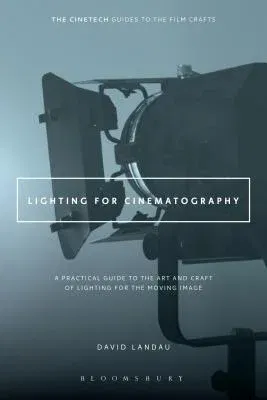David Landau
(Author)Lighting for Cinematography: A Practical Guide to the Art and Craft of Lighting for the Moving ImagePaperback, 10 July 2014

Qty
1
Turbo
Ships in 2 - 3 days
In Stock
Free Delivery
Cash on Delivery
15 Days
Free Returns
Secure Checkout

Part of Series
Cinetech Guides to the Film Crafts
Print Length
288 pages
Language
English
Publisher
Bloomsbury Academic
Date Published
10 Jul 2014
ISBN-10
1628926929
ISBN-13
9781628926927
Description
Product Details
Author:
Book Format:
Paperback
Country of Origin:
US
Date Published:
10 July 2014
Dimensions:
23.37 x
18.54 x
2.03 cm
Genre:
Film
ISBN-10:
1628926929
ISBN-13:
9781628926927
Language:
English
Location:
New York
Pages:
288
Publisher:
Weight:
748.43 gm